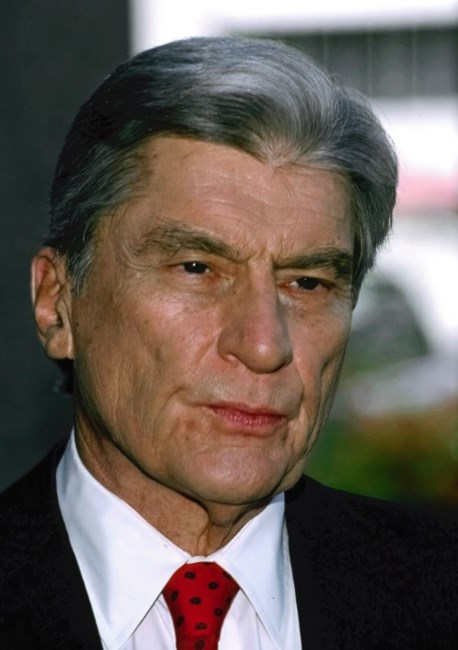
OBITUARIO
John Warner
18 febrero, 1927 – 25 mayo, 2021

Warner died of heart failure at his home in Alexandria, according to Susan Magill, a former chief of staff.
Born in Washington on Feb. 18, 1927, Warner was the son of John William Warner II and Martha Stuart Budd Warner. His father was an obstetrician and gynecologist who served as a field surgeon during World War I.
Warner graduated from Woodrow Wilson High School and joined the Navy, at the age of 18, near the end of World War II. He was discharged as a petty officer third class in 1946 and enrolled at Washington and Lee University, earning a degree in engineering.
After graduating in 1949, Warner enrolled in law school at the University of Virginia. However, his time in law school was interrupted when he joined the Marine Corps during the Korean War. After being discharged at the rank of captain, he returned to law school and received a law degree in 1953.
He served a clerkship to Chief Judge E. Barrett Prettyman of the U.S. Court of Appeals in Washington and then spent two years in private practice before becoming an assistant U.S. attorney.
By 1969, Warner joined Richard Nixon’s presidential campaign. When Nixon won, Warner was named the Navy undersecretary.
While serving as Navy undersecretary, Warner met Elizabeth Taylor at a luncheon at the British Embassy. On Dec. 4, 1976, the two married in a small ceremony at Atoka Farm.
Although they separated in December 1981 and divorced the following year, Warner and Taylor remained friends until Taylor’s death in 2011.
Taylor’s celebrity was a draw on the campaign trail during Warner’s first race for the Senate in 1978, an election he won narrowly to start his political career.
During his 30 years in the Senate, Warner became a leading Republican voice on military policy. Later in his career, Warner was recognized as a protector of the Senate’s traditions and was credited with trying to forge bipartisan consensus on high-profile issues such as the Iraq War, treatment of terror detainees and backing of the assault weapons ban.
He was one of 10 Republican senators who voted against the charge of perjury in the impeachment of President Bill Clinton. Warner also spoke out against the military’s “don’t ask, don’t tell” policy, telling the Joint Chiefs of Staff, “I respectfully, but strongly, disagree with the chairman’s view that homosexuality is immoral.”
When he retired in 2009, Warner was awarded the first National Intelligence Distinguished Public Service Medal; the Navy announced it would name its next Virginia-class submarine the “USS John Warner,” and Queen Elizabeth II named him an honorary Knight Commander of the British Empire for strengthening the U.S.-British military alliance.
Warner is survived by his wife, Alexandria Warner; three children, Virginia Warner, Mary Conover and John W. Warner IV; and two grandsons.
Muestre su apoyo
Comparta Un Recuerdo
Comparta
Un Obituario
Obtenga actualizaciones
COMPARTA UN OBITUARIO
- RECIBE ACTUALIZACIONES
v.1.8.18